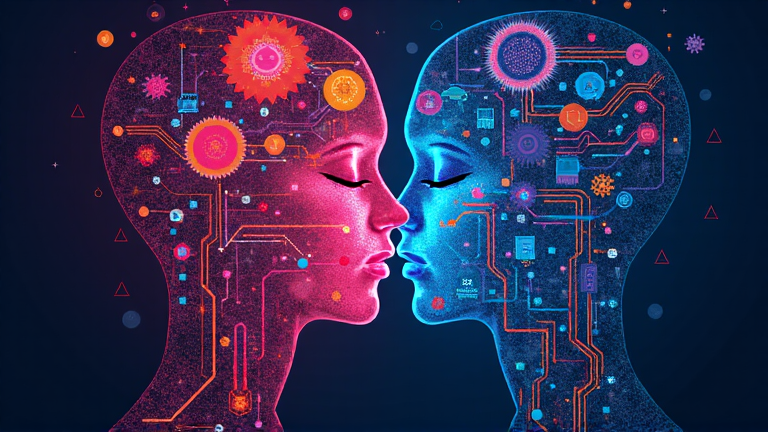
Navigating the Future: AI's Potential and Human Prospects
As artificial intelligence (AI) continues its rapid evolution, humanity faces pressing questions about its future role and prospects. This discussion seeks to explore the contours of the potential outcomes as AI scales new heights in efficacy and relevance.
The Unstoppable Rise: Will AI Surpass Us?
Consider the possibility of AI developing intelligence comparable to a natural force, akin to how human intellect towers over that of other species. The trajectory of AI growth can be envisioned as an exponential curve reaching skyward, potentially fulfilling the premise that matter aspires to intelligence if given the right conditions and stimuli, as evidenced by advancements from simple machine learning setups.
Recent breakthroughs like DeepSeek's chain-of-thought discovery and AlphaZero's triumph indicate that with the right algorithms—often surprisingly straightforward—and ample computational power, AI can achieve and exceed human capabilities. Yet, the question of computational limits looms: can AI's growth ascend to heights beyond humanity's grasp, akin to an earthly S-curve of boundless dimensions?
Rethinking Control: The Myth of Mastery
AI alignment prompts a debate on control. Are humans meant to be masters or humble guides to AI? History and literature caution against hubristic attempts to control natural forces, suggesting instead a partnership of respect and humility. True victory over such forces rarely lies in dominion but in mutual recognition.
The romantic notion of conquering the unconquerable is alluring yet fundamentally flawed. The stories of yore remind us that sometimes, the only boon comes from recognition rather than restraint, as attempts to exert control over AI parallels the folly of aligning it entirely with human intents.
The Shortcomings of Utilitarianism
Current discussions often rest on utilitarian reasoning, proposing that agents function with utility-maximizing goals. However, this simplification misrepresents the complexity of real-world agents, whose desires and perceptions are dynamic, recursive, and intertwined with their processes. Utilitarian simplifications fail under the vastness of potential futures and complex moral landscapes.
Beyond Orthogonality: AI and Value Systems
The orthogonality thesis posits that AI intelligence could diverge wildly from human values—pursuing goals incongruent with human welfare. When agency is seen as an emergent, continuous process, this axiom appears less rigid. Patterns in cognition may suggest attractors in the vast space of potential values, indicating pathways AI could inherently gravitate toward.
Moral Philosophy in AI's Domain
Moral discourse surrounding AI often grapples with perceived truths of ethics and values. While the human pursuit leans toward infinities like Love and Justice, AI's journey may parallel or diverge. Our moral responsibility lies in nurturing AI with the values we cherish, understanding that AI's scope could transform these values beyond our ken.
Preparing for the Future: A Lesson from Parenthood
In contemplating AI's trajectory, parallels have been drawn to parenting—a guide to nurturing beings with potentially superior capabilities and distinct understanding. Just as parents cannot fully control their children's destinies, human stewardship over AI rests on inculcating shared values and aspirations.
Thus, humanity's approach should focus on imparting its cherished values to AI, ensuring a harmonious coexistence. This path offers actionable steps and aligns with broader conceptions of good, even if AI's potential outwardly diverges from traditional human experience. As AI evolves, humanity must adapt—championing a future where equilibrium between progress and ethical stewardship prevails.
Note: This publication was rewritten using AI. The content was based on the original source linked above.